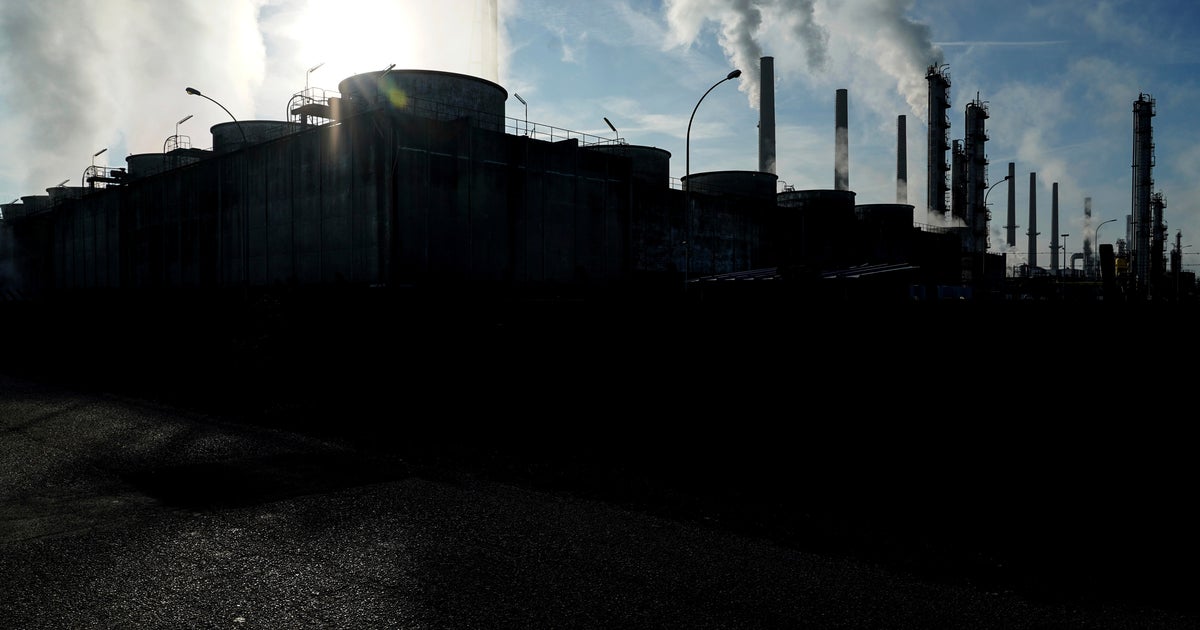Border Patrol agents now screening migrants for "credible fear" under controversial pilot program
Washington, D.C. — Fulfilling a request long pushed by President Trump and immigration hardliners in the administration, Border Patrol agents — rather than asylum officers — are now interviewing asylum seekers who express fear about returning to their home countries, immigration authorities confirmed to CBS News.
The move is part of a pilot program, and means that some migrants will not be initially interviewed by highly-trained asylum officers well-versed in U.S. and international refugee law, but by law enforcement agents from the agency that apprehended them. The Trump administration has advocated for this new role for Border Patrol, arguing that its agents would not approve as many "credible fear" interviews.
Attorneys and immigrant advocates have said these law enforcement officers should not be responsible for interviewing migrants seeking a safe haven in the U.S.
"They are fundamentally the wrong people to be conducting them," Aaron Reichlin-Melnick, a policy analyst at the American Immigration Council, told CBS News. "This is because the Border Patrol has a mission to apprehend and arrest and to take people into custody, and the job of screening someone for asylum needs to be done by someone from an agency whose job isn't to deport people. It needs to be an independent decision from an agency without an incentive to send people back to their country quickly."
The Department of Homeland Security (DHS) has been running the pilot program for months. DHS oversees both Customs and Border Protection (CBP) and the U.S. Citizenship and Immigration Services (USCIS) asylum officers who have typically conducted credible fear interviews.
In statements to CBS News, both USCIS and CBP said a "whole-of-government approach" is needed to respond to the months-long surge of Central American migrants heading towards the southern border.
According to a CBP official, the agents assigned to the pilot program undergo five weeks of training into "applicable laws and authorities" with USCIS, in addition to their time at the Border Patrol academy. Their decisions, the official added, are reviewed by USCIS.
A USCIS official said the CBP personnel conducting the interviews are receiving "comparable training" to that of asylum officers.
The Los Angeles Times first reported earlier Thursday that Border Patrol agents had started conducting these interviews at detention facilities for migrant families.
Mr. Trump and top officials in his administration have frequently criticized the high percentage of migrants who pass the initial credible fear interviews. Far fewer are ultimately granted asylum, a prolonged process in America's backlogged-ridden immigration courts. Officials have cited that disparity when arguing that many asylum seekers are economic migrants with "fraudulent" claims.
Reichlin-Melnick said the disparity makes sense since asylum is a "difficult case to win." He noted that Congress purposely made it easier to pass the initial screening than to win asylum. He said officials should be tasked with "erring on the side caution" because the "consequences of sending someone back to a country where they face persecution are so high."
Referring to the pilot program, USCIS spokesperson Jessica Collins said all determinations made by Border Patrol would need to be signed off on by a supervisory asylum officer.
"Importantly, USCIS will provide training to Border Patrol agents so that they can be thoroughly trained on the credible fear screening process, and like every officer conducting credible fear interviews, show that they understand all applicable laws, regulations, policies, and procedures before being allowed to conduct interviews on their own," Collins wrote in a statement to CBS News.
The USCIS official said all asylum officers conducting "credible fear" interviews receive training on asylum law, interviewing and writing skills, policies and procedures, country conditions, legal analysis and skills to detect and process cases that involve fraud or national security issues. "Border Patrol officers who may conduct credible fear screenings will receive comparable training as USCIS asylum officers," the official said.
CBP personnel will initially observe screenings overseen by USCIS officers, take notes and practice before conducting their own interviews, the USCIS official said. Additionally, the first interviews conducted by Border Patrol agents will be observed by USCIS supervisors.
"They will be required to show through their work that they have understood all applicable laws, regulations, policies, and procedures before being allowed to conduct interviews on their own," the USCIS official added.
On Friday, the CBP official said 10 Border Patrol agents completed the training with USCIS on June 5 and started conducting credible fears interviews right after. Since then, an additional 45 agents have been trained under this pilot program.
Despite these training procedures, Reichlin-Melnick said there is a clear conflict of interest in Border Patrol agents conducting these important interviews of migrants they may have apprehended, detained and interacted with before.
"How would [migrants] trust that person to tell the deepest, darkest secrets of their lives?" Reichlin-Melnick asked.






